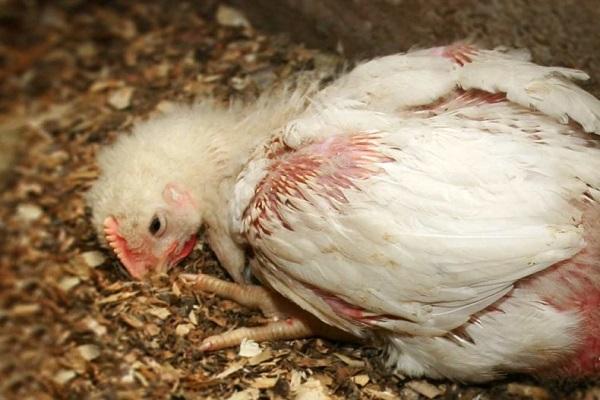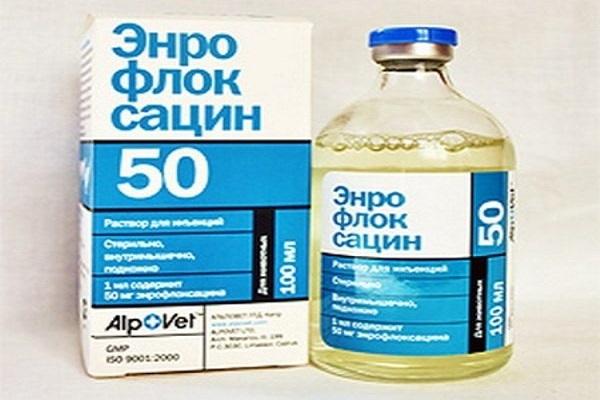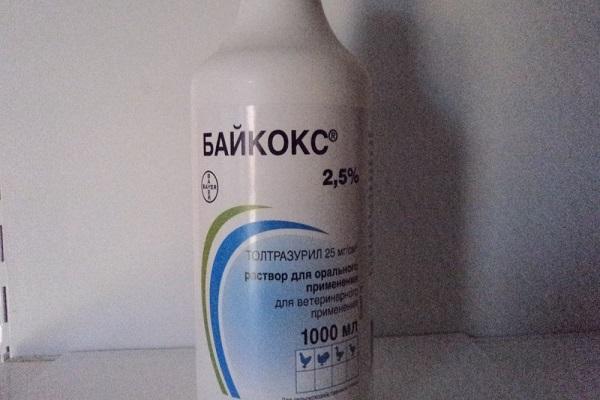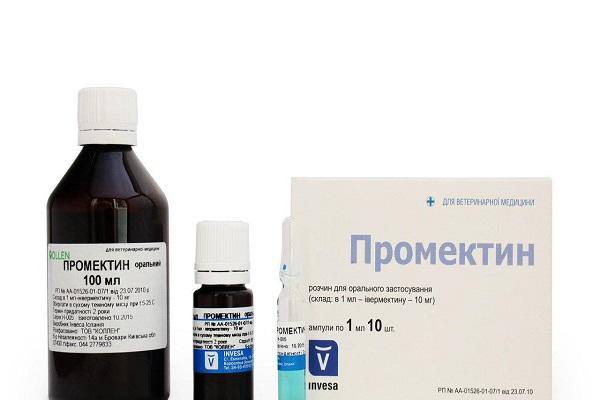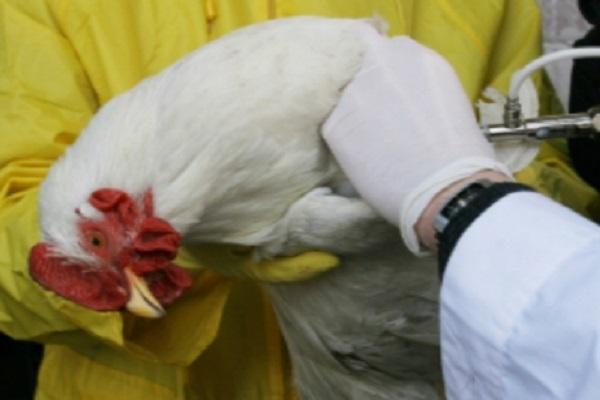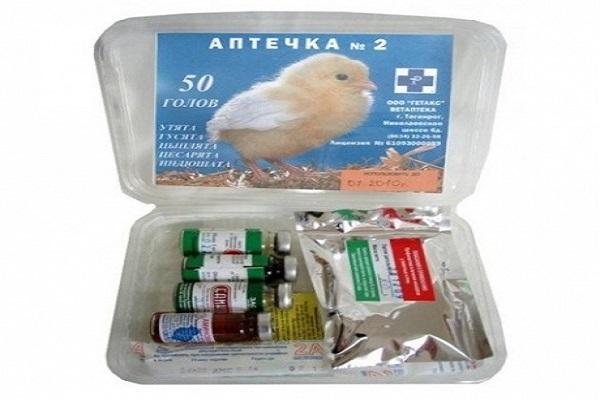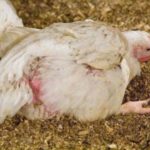When purchasing broilers, a first aid kit for young chickens is purchased. This first aid kit contains all the necessary medications that are used from the first days. Timely use of a first aid kit reduces the risk of disease and promotes the development of immunity that will last throughout the life of the chicken.
What can a chicken get sick with?
An adult chicken can be susceptible to infectious and viral diseases.
However, young chickens are often exposed to diseases, so the veterinary kit is used to develop immunity against the following diseases:
- The appearance of putrefactive infections in the digestive tract. More often, this problem occurs in chickens under 3 days of age. Since the digestive system cannot cope with large amounts of food and may malfunction.
- Aspergillosis is a viral disease that affects chickens.
- Salmonellosis can occur in chicks. It is transmitted via airborne droplets and can infect a poultry house in a short time.
- Pullorosis - affects young chickens. The lesion occurs from the chicken or in the first days after birth.
- Rickets is a disease caused by insufficient amounts of vitamins in the body. The causes of the disease are poor nutrition.
- Parasites negatively affect the health of the chicken and often cause death. A chick can become infected with parasites from adults or as a result of failure to comply with the necessary care. Often water that has not undergone the necessary treatment acts as a carrier of parasites.
A chicken can become sick as a result of improper care. Such cases often occur, therefore, in addition to the first aid kit, you need to familiarize yourself with the rules for caring for the bird.
Contents and instructions of a veterinary first aid kit for broilers
The contents of the first aid kit include all the necessary medications so that in the first stages of development the chicken can develop immunity and begin to develop quickly.
From bacteria
Such diseases occur as a result of infection with bacteria that can be carried by other birds or appear due to improper care of chickens. Bacterial diseases include diphtheria, cholera, and plague.
The drug Enrofloxacin 10% is used against bacteria. An antibacterial agent that dissolves in a liter of warm water. The resulting solution is used for drinking by the chicks. It is necessary to feed the chickens for three days.
From germs
Microbes can cause complex diseases, so Baytril is used. The drug is an antibiotic and reduces the risk of disease. This product is added to the water in the first three days. To obtain the result, you must maintain a proportion of 1 ml per 50 grams. You can use a pipette to administer the substance to each chick.
Using drip feeding for each chick allows you to achieve the desired result in a short time.
For mycoplasmosis and more
"Baycox" - this substance is used for a large number of diseases, including mycoplasmosis. The solution dissolves in water and is used instead of drinking liquid. The substance is diluted in one dose per liter of water.
Anthelmintic
Albendazole is used for treatment. The drug is active against parasites and is produced in powder form. The substance must be introduced into the chicken’s diet after 5 days. This removes parasites and eggs in a short time.
To combat skin parasites (fleas, lice), skin diseases
The appearance of fleas and skin diseases is most often signaled by the following symptoms: nervousness of the bird, weakness and lack of appetite. The following medications are used to treat such problems:
- “Promectin” - the drug is mixed with drinking liquid and fed to the chickens. It is recommended to re-treat after 10 days;
- "Butox 50" - used as a treatment for bird feathers. Not for internal use.To use, you need to dissolve one ampoule of the substance in a liter of water, then spray the chickens.
To prevent the disease from occurring, it is necessary to treat the chicken coop and the litter that is used. Antiseptics, copper sulfate or lime can be used as a treatment agent.
Important. The veterinary kit for chickens contains drugs to enhance immunity. The first aid kit also contains special vitamins that are necessary for the normal development of the chicken..
Vaccination
Chicks are vaccinated at 5 days. The chicken receives a vaccine that prevents diseases from occurring. The following types of vaccination are distinguished:
- Injections are recommended if there is an epidemic in the region where chickens are raised. In this case, it is necessary to carry out mandatory vaccination of all birds.
- Carrying out the procedure if broilers are raised. In this case, vaccination is used to reduce egg production.
- Use of vaccines against infectious diseases. Such administration of the drug is necessary in cases where the poultry farmer refuses to purchase a first aid kit.
The selection of the vaccine must be carried out depending on the type of chicken and age. Before the procedure, you need to familiarize yourself with possible side symptoms.
Important. Before vaccination, it is necessary to consult with a specialist and make test injections to preserve the bulk of the chickens.
Tips and tricks from experienced poultry farmers
When using a first aid kit for chickens, the following recommendations from poultry farmers should be taken into account:
- Buy a first aid kit along with your chickens. Start using the medications from the first day strictly according to the instructions included.
- Some types of drugs require repeated use, this increases the risk of protecting the bird from possible disease.
- Chicks must be kept in a warm place.
- Often, when there is insufficient light, it is necessary to use special red lamps. Such lamps provide the necessary heat without affecting the growth and development of birds.
- The room in which the birds are kept must be spacious.
- In the first few days, a weak solution of manganese is used to seal the chickens. For drinking you must use boiled water.
- Drinkers and feeders must be cleaned daily for the first two weeks. The litter is changed every 2 days. Once a week it is necessary to disinfect the feeder and drinking bowl.
Compliance with the recommendations reduces the risk of disease formation and increases the bird’s immunity.
Conclusion
Raising chickens requires skill, including the use of timely preparations. A special first aid kit provides the necessary medications for the health of the bird. In order to achieve the desired results, it is important to observe the interval of use of medications. Therefore, before use, it is important to read the instructions or consult a veterinarian.

